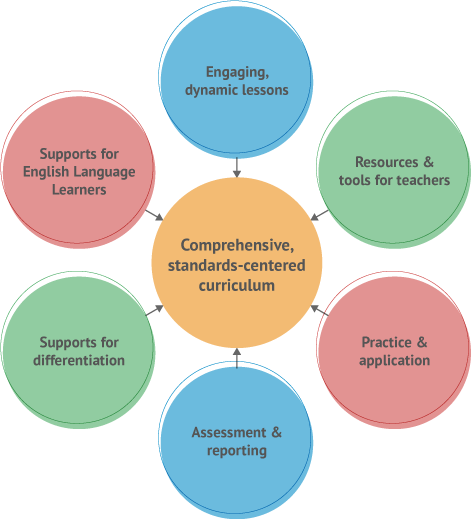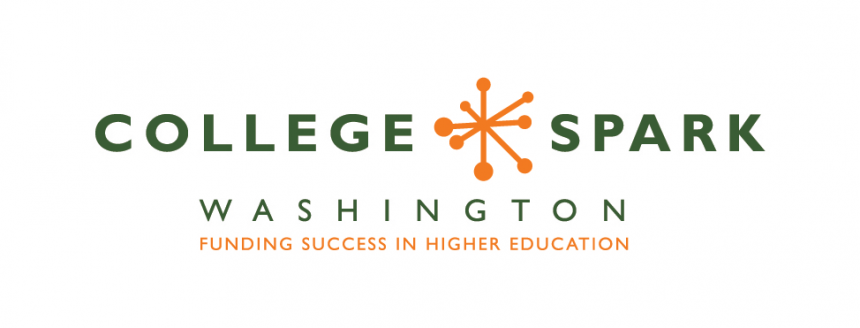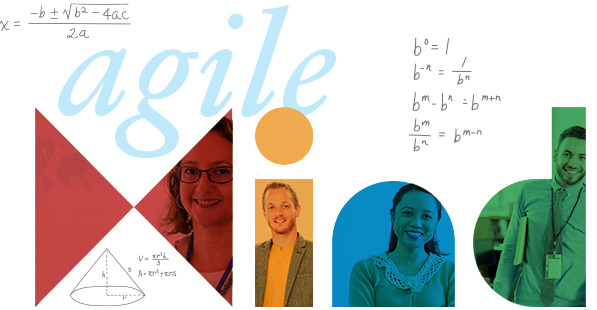Welcome Washington Educators

Agile Mind brings you comprehensive, Common Core State Standards aligned middle and high school programs to enhance the teaching and learning experience and achieve transformative results in STEM coursework. Our goal is to help students make an effective transition to high school, excel on Smarter Balanced assessments, and prepare for success in college and career.
This page offers an introduction to Agile Mind as well as resources to facilitate your review of the Agile Mind Intensified Algebra I and Academic Youth Development programs, available through grant funding from College Spark Washington.
The Intensified Algebra I and Academic Youth Development programs are delivered via teacher-facilitated classroom instruction and are accessed online.
Summer PD Events
CRMI Agile Mind Summer Institute at Wapato
August 7-9
Teachers (New and Experienced): August 7-9, 8:00 – 3:30pm (last day is a half day)
Leaders New to Agile Mind: August 7, 8:00 – 11:30am
Leaders Experienced with Agile Mind: August 7, 12:00 – 3:30pm
CRMI Agile Mind Summer Institute at Edmonds
July 31- August 1
Teachers (New and Experienced): July 31- August 1 , 8:00 – 3:30pm (last day is a half day)
Leaders New to Agile Mind: July 31, 8:00 – 11:30am
Leaders Experienced with Agile Mind: July 31, 12:00 – 3:30pm
Intensified Algebra I:
This comprehensive, extended-period program is designed to help students who are one to three years behind in mathematics re-engage as motivated learners and succeed in Algebra I within a single academic year. The program is for eligible 8th, 9th, or 10th grade students, and combines an Algebra I course curriculum with content that develops students’ learning mindsets and their persistence with academic challenges. Use these links for details:
- Intensified Algebra I — Fact Sheet
- Intensified Algebra I — Research Brief
- Intensified Algebra I — CCSS to Topics / Scope & Sequence
M
Academic Youth Development (AYD):
AYD provides knowledge emerging from the psychological and other learning sciences about how students’ learning mindsets, motivation, and engagement affect the effort they put into school, and, ultimately, their ability to be successful. We offer two AYD programs as part of the College Spark Washington funding opportunity:
- School-Year AYD: Working within a school’s Advisory system, this program for 8th, 9th, or 10th grade students is designed to strengthen students’ learning mindsets, attitudes, beliefs about their own abilities, and problem-solving skills to better prepare them for the increased rigor of high school STEM and college preparatory courses.
- An Educator’s Course in AYD: This course is for faculty teams in schools and districts interested in learning about and applying the research and strategies that are most crucial to student learning and achievement.
Researchers at the Charles A. Dana Center and elsewhere have studied the outcomes of the AYD program since 2008 and have found significant positive changes in student and teacher attitudes and beliefs, as well as student achievement, particularly in Algebra I. Click on the following links for details:
- Academic Youth Development — Fact Sheet
- Academic Youth Development — Research Brief
- School-Year AYD — Scope & Sequence
- An Educator’s Course in AYD — Fact Sheet
To better understand how to address the needs of English Language Learners with Agile Mind, please review our brief, Teaching English Language Learners.
Videos
We encourage you to review the videos below, which provide a brief overview of our approach to teaching and learning.
Summary
Agile Mind programs include a complete set of tools to help teachers work most effectively and to enable students to take responsibility for their learning. Programs include:
- Job-embedded professional development with just-in-time support, lesson plans, and high-yield strategies built with the support of teachers
- Rigorous, coherent course curricula built for our next-generation standards, enriched by animations, multiple representations, and simulations of central concepts
- Comprehensive practice, homework, and test preparation resources
- Rich, next-generation formative assessments, many automatically graded
- Real-time data and reports on the progress of effort and learning
Nationally Respected Authors
Our math programs are developed in collaboration with the Charles A. Dana Center at The University of Texas at Austin.
Thank you for your time and consideration as we work together to transform achievement in math and science — for all students!
ABOUT COLLEGE SPARK WASHINGTON
College Spark Washington funds programs across Washington state that help low-income students become college-ready and earn their degrees. Grantees include community-based organizations, K-12 schools and districts, community and technical colleges, four-year colleges and universities, educational nonprofits, and public agencies. College Spark began supporting access to higher education in 1978 and, since 2005, has awarded more than $38 million to college readiness and degree completion programs throughout the state.
ABOUT OSPI
The Office of Superintendent of Public Instruction (OSPI) is the primary agency charged with overseeing K–12 education in Washington state. Led by State School Superintendent Chris Reykdal, OSPI works with the state’s 295 school districts and nine educational service districts to administer basic education programs and implement education reform on behalf of more than one million public school students. OSPI provides equal access to all programs and services without discrimination based on sex, race, creed, religion, color, national origin, age, honorably discharged veteran or military status, sexual orientation, gender expression or identity, the presence of any sensory, mental, or physical disability, or the use of a trained dog guide or service animal by a person with a disability. Questions and complaints of alleged discrimination should be directed to the Equity and Civil Rights Director at (360) 725-6162 or P.O. Box 47200, Olympia, WA 98504-7200.







